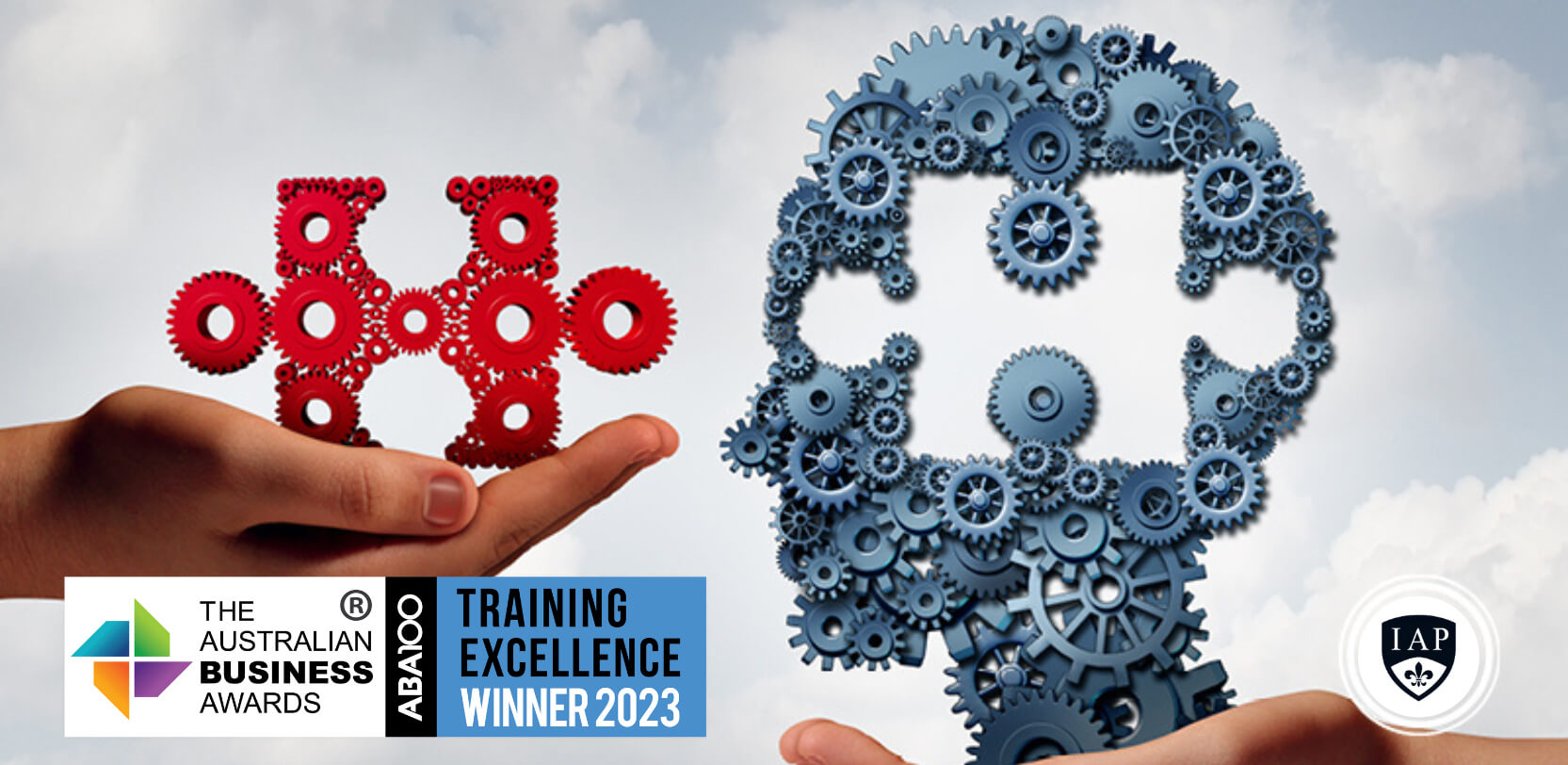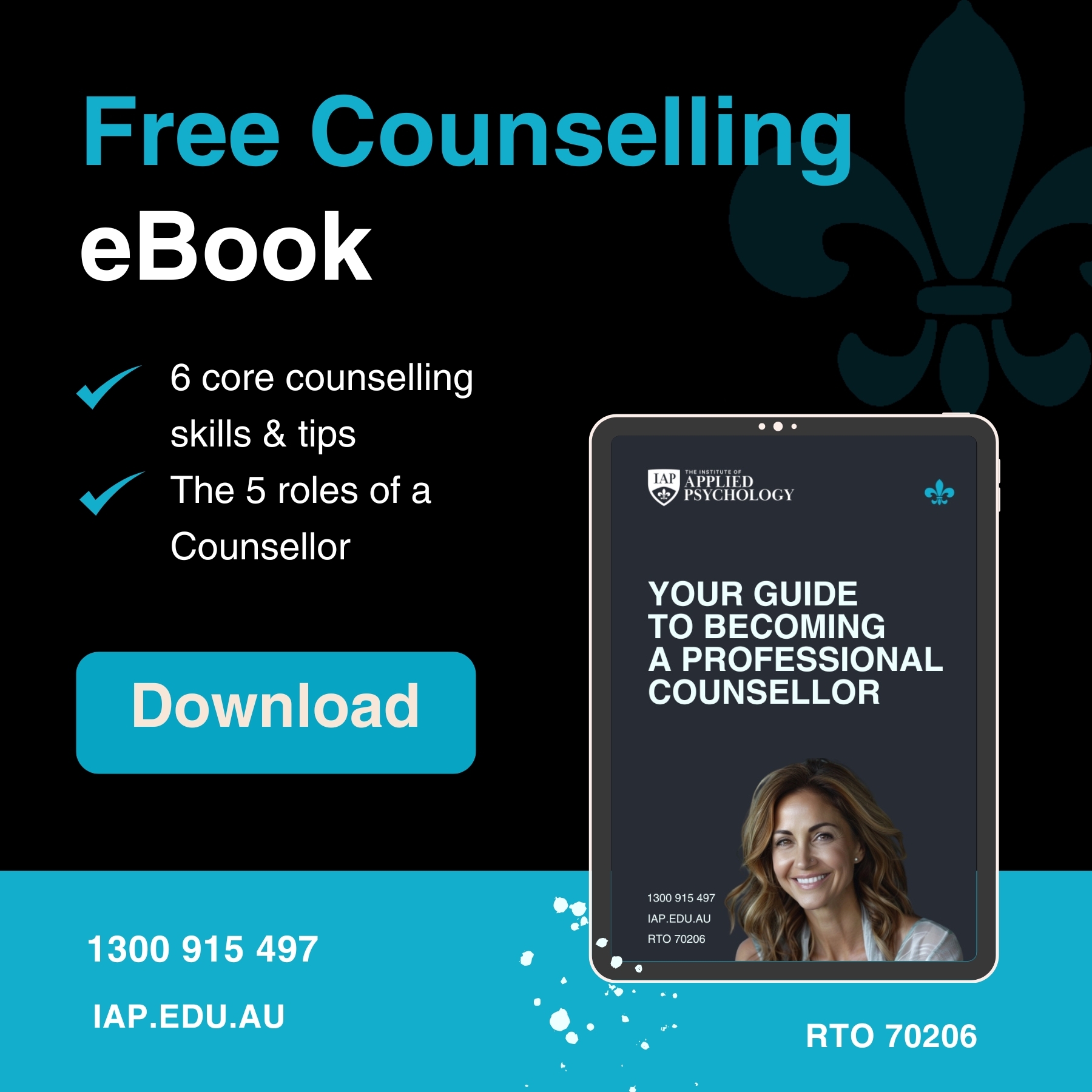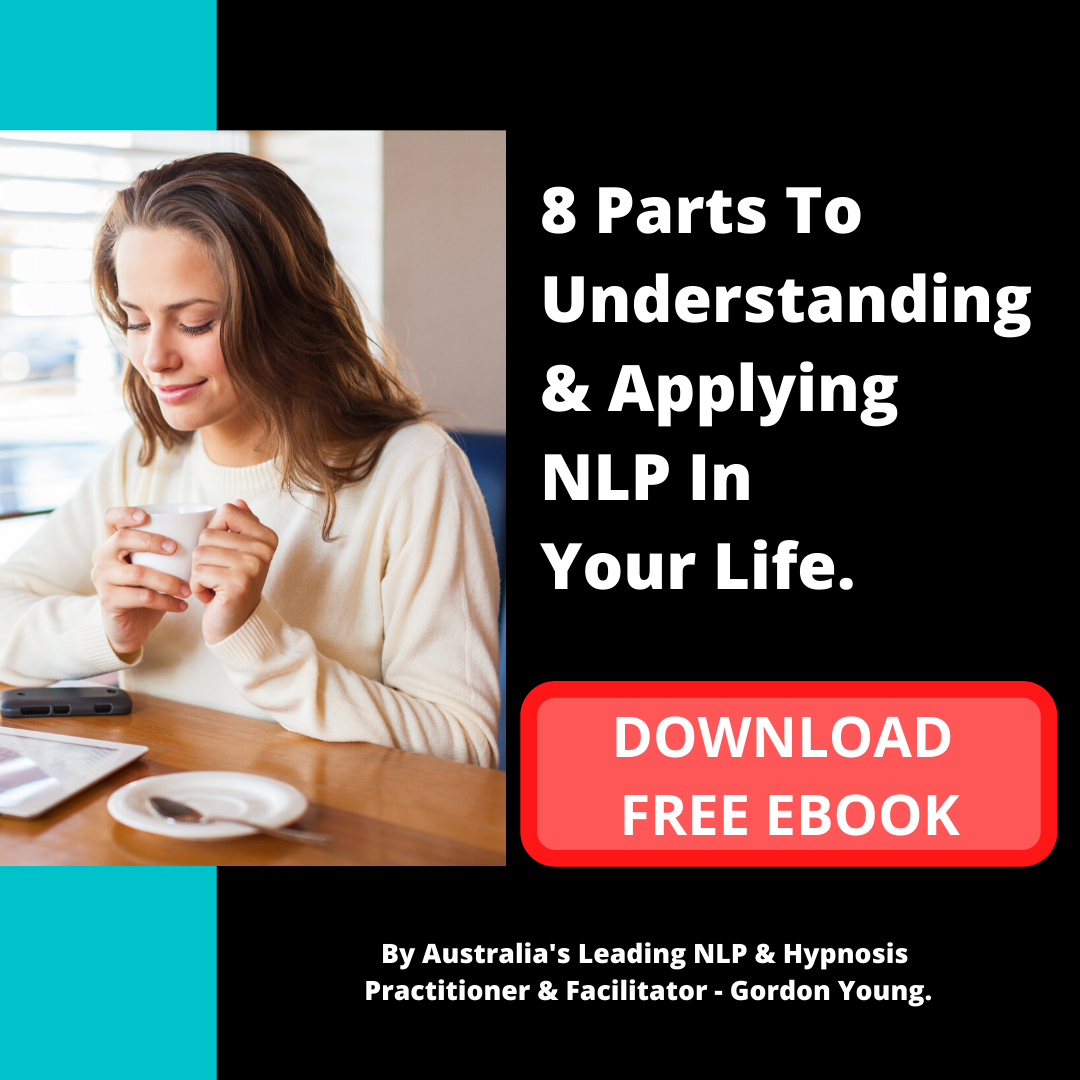Three Emerging Trends and Counselling Career Opportunities in Australia | Institute of Applied Psychology
THE FUTURE OF COUNSELLING: THREE EMERGING TRENDS AND CAREER OPPORTUNITIES IN AUSTRALIA
Counselling has always been about connection—being there for people in their times of need, guiding them through challenges, and helping them find clarity and peace. But as the world changes, so does the field of counselling. New trends shape how counsellors provide support, and for those considering a career in counselling—especially in Australia—these trends offer exciting opportunities to make a real difference. In this blog, we’ll explore some emerging trends, like teletherapy, and discuss the new career possibilities they open up. We’ll also look at how you can become a counsellor and why this could be your right career choice.
Emerging Trends in Counselling
Teletherapy and Digital Counselling
Imagine being able to help someone from the comfort of your home, no matter where they are in Australia. That’s the promise of teletherapy, a trend that has taken off, especially since the COVID-19 pandemic. Teletherapy allows counsellors to meet with clients online, making therapy more accessible to those in remote areas with busy schedules or who feel more comfortable in their own space.
This shift to digital platforms opens up a world of possibilities for counsellors. You’re no longer limited to clients who can physically visit your office. Instead, you can connect with people from all over Australia—or even globally—offering your expertise to those who need it most. Teletherapy also allows you to work from anywhere, for any company you seek employment with, your own home office, a coworking space, or even while travelling.
If you’re thinking about becoming a counsellor, this trend means you could have the freedom to build a career that fits around your life rather than the other way around. Imagine the possibilities!
Integrative and Holistic Approaches
People are increasingly looking for counsellors who see them as whole individuals—mind, body, and spirit. This is where integrative and holistic counselling comes in. Rather than just focusing on mental health symptoms, this approach examines how all aspects of a person’s life are interconnected.
In Australia, more and more clients are seeking counsellors who can help them manage stress, anxiety, and overall well-being, including their physical health and lifestyle. If this approach resonates with you, you can expand your skills in many areas and offer a holistic approach. By offering a holistic approach, you can stand out in the field and provide something truly valuable to your clients.
Focus on Trauma-Informed Care
Trauma can profoundly affect a person’s life, often in ways they might not fully understand. Trauma-informed care is about recognising this and providing support that considers the impact of trauma on a person’s mental and physical health.
In Australia, there’s growing recognition of the importance of trauma-informed care, especially considering the country’s history and the challenges faced by various communities, including Indigenous populations. As a counsellor, learning how to work with clients who have experienced trauma is becoming an increasingly important skill.
Specialising in trauma-informed care could be a fulfilling path if you’re drawn to helping people heal from their past. This area of counselling allows you to offer deep, compassionate support to those who have been through some of life’s toughest experiences.
The Role of Technology in Enhancing Counselling Services
Technology is changing not only how we connect but also how we heal. Beyond teletherapy, there are exciting advancements in mental health apps, virtual reality (VR) therapy, and even artificial intelligence (AI).
For example, mental health apps are becoming popular self-care tools. They help people track their moods, practice mindfulness, and engage in therapeutic exercises between sessions. As a counsellor, you might recommend these apps to your clients as a way to enhance their treatment.
Virtual reality therapy is another fascinating development. Imagine helping clients overcome their fear of flying by having them experience a virtual flight in a safe, controlled environment. While still emerging, VR therapy shows promise in areas like anxiety and PTSD treatment.
And then there’s AI. While it might sound futuristic, AI is being used to create chatbots that offer immediate support to people in crisis. These tools aren’t meant to replace human counsellors, but they can provide an additional layer of help when someone needs advice right away.
For future counsellors, embracing these technologies can make your practice more versatile and responsive to the needs of modern clients. How exciting is it to think about the possibilities?
Career Opportunities in Counselling
To become a counsellor in Australia, you’ll need to complete an approved applied psychology course. We’ll delve into qualification pathways in more detail to help you choose the right one for you. Once you’ve completed your qualification, the next step is to register. Counsellors do need to be registered in Australia in order to practice legally.
As the field of counselling evolves, so do the career opportunities. Let’s look at some of the paths you might take:
Private Practice
Many counsellors are drawn to private practice because it allows them to set their hours, choose their clients, and create a work environment that suits them. With teletherapy, private practice has become more accessible than ever. You can start your practice from home, reaching clients across Australia without the overhead of a traditional office.
School counselling
Supporting young people through their school years is both challenging and rewarding. School counsellors play a vital role in helping students navigate academic pressures and personal issues. However, it’s important to note that each state in Australia—and even different public and private schools within those states—may have different preferences for what qualifications and experiences they expect from school counsellors. Some states have specific rules and guidelines that school counsellors must follow, which might require different educational paths.
This can be an especially valuable addition for teachers considering counselling to their skill set. Not only can you support students in a more holistic way, but you’ll also become a more versatile and valuable member of the school community. Understanding the specific requirements of your state or school will be key in tailoring your education and training to meet those needs.
Community and Nonprofit Organisations
Working for a community or nonprofit organisation could be a great fit if you’re passionate about social justice and helping those in need. These organisations provide vital services to vulnerable populations, including refugees, Indigenous communities, and those facing homelessness. As a counsellor in this setting, you can make a real difference in people’s lives.
Corporate and Workplace Counselling
As mental health becomes a bigger focus in the workplace, more companies offer counselling services to their employees. In this role, you might align it with human resources to help people manage work-related stress, navigate career challenges, or even develop wellness programs for the entire organisation. It’s a chance to use your skills in a setting that supports people’s well-being on the job.
Specialised Counselling Services
Specialising in a particular area—like grief counselling, addiction recovery, or couples therapy—can open up unique opportunities. Specialisations allow you to build deep expertise in an area you’re passionate about and attract clients looking for that support.
How to Become a Counsellor in Australia
If these emerging trends and opportunities have inspired you, you might wonder how to become a counsellor. In Australia, one of the most accessible and recognised ways to enter the field is by completing the CHC51015 Diploma of Counselling, offered by ACA-recognised institutions like IAP.
Complete the CHC51015 Diploma of Counselling
Wondering what qualifications you need to be a counsellor in Australia? Start by looking into the CHC51015 Diploma of Counselling. This diploma is designed to give you a solid foundation in the skills and knowledge needed for a successful counselling career. The program covers essential topics like counselling theories, communication techniques, mental health awareness, and ethical practices. What’s great about this diploma is that it’s hands-on—you’ll get to apply what you’re learning in real-world settings with mock assessments, which is invaluable as you start your career.
The program at IAP is well-regarded, offering a supportive learning environment focused on helping you succeed. Once you’ve completed this diploma, you’ll be qualified to start working as a counsellor and continue your education if you wish to specialise further.
Obtain a Government-Recognised Qualification
You’ll receive a government-recognised qualification upon completing the CHC51015 Diploma of Counselling. This is crucial for working as a counsellor in Australia, as it shows that you’ve met the national standards for counselling practice. With this qualification, you’ll be ready to start your career and make a difference in the lives of others.
Register with the Australian Counselling Association (ACA) and the global peak body, The International Association of Counsellors (IAC).
You’ll want to register with a professional body like the Australian Counselling Association (ACA) to further establish your credibility and professional standing. Membership with the ACA demonstrates your commitment to ethical practice and ongoing professional development. It also provides access to resources, networking opportunities, and professional insurance—all important as you build your career.
As a graduate of the CHC51015 Diploma of Counselling with IAP, you can also choose to register with The International Association of Counsellors, who is the global peak body and aligns with the United Nations.
Gain Practical Experience
Experience is key in counselling. Beyond the practical training in your diploma, it’s important to seek additional opportunities to gain experience. This might include internships, volunteer work, or supervised placements. Not only does this experience build your skills, but it also helps you connect with other professionals in the field and explore different areas of counselling.
Consider Further Specialization
While the CHC51015 Diploma of Counselling provides a strong foundation, you might decide to specialise further in a particular area of interest. This could involve pursuing additional qualifications, such as a Master of Counselling or specialised training in trauma-informed care or family therapy. Specialising can help you carve out a niche in the counselling field and offer more targeted services to your clients.
What Are The Pros and Cons of Being a Counsellor?
Counselling might be the perfect fit if you’re looking for a career that offers personal and professional fulfilment. The combination of making a difference in people’s lives, the flexibility of work environments, and the continuous opportunities for learning make it an attractive option for many. Though some may view the study time as a potential con, with the right guidance, you’ll be able to find the best counselling qualification for you.
Why Choose Counselling as a Career?
counselling is a career that offers professional fulfilment and personal growth. Here are some reasons why you might choose to pursue counselling as your new or additional career:
- Make a Difference: At its core, counselling is about helping others. As a counsellor, you have the unique opportunity to support individuals through some of their most challenging times. Whether it’s guiding someone through grief, helping them manage anxiety, or assisting them in overcoming personal obstacles, your impact on someone’s life is profound. This sense of purpose and the ability to make a tangible difference is one of the most rewarding aspects of a career in counselling.
- Variety and Flexibility: One of the great things about a career in counselling is the variety of work settings and specialisations available. Whether you work in private practice, schools, community organisations, or corporations, your skills can be applied in a wide range of environments. This flexibility allows you to find a niche that suits your interests and lifestyle. You can also set your schedule, particularly in private practice, allowing a better work-life balance. For those who prefer structure, roles in schools or corporate environments offer stability while still providing the satisfaction of helping others.
- Continuous Learning and Growth: The field of counselling is dynamic and ever-evolving. This means that as a counsellor, you’ll have continuous opportunities for professional growth. New research, techniques and approaches are constantly emerging, offering you the chance to learn and expand your expertise throughout your career. Whether it’s through formal education, workshops, or peer learning, counselling encourages lifelong learning. This constant evolution keeps the work interesting and allows you to provide the best possible care to your clients.
- Building Deep Connections: counselling is about building deep, meaningful connections with others. The therapeutic relationship you develop with your clients is central to counselling. This connection is built on trust, empathy, and understanding, allowing clients to open up and work through their issues in a supportive environment. The relationships you build with your clients can be incredibly fulfilling as you witness their progress and growth over time.
- High Demand and Job Security: With the increasing recognition of mental health issues in Australia, the demand for qualified counsellors is rising. This growing demand can help provide many opportunities for those entering the field. As more people seek out mental health support, the need for skilled counsellors in various settings continues to expand. This trend is expected to continue, making counselling a stable and promising career choice for the foreseeable future.
Making Counselling Your Career
Counselling might be the perfect fit if you’re looking for a career that offers personal and professional fulfilment. The combination of making a difference in people’s lives, the flexibility of work environments, and the continuous opportunities for learning make it an attractive option for many. You can start your journey in this rewarding field by completing the CHC51015 Diploma of Counselling and registering with the Australian Counselling Association. The possibilities are endless, whether you’re just starting your career or looking to add counselling to your existing skill set.
Counselling isn’t just a job; it’s a vocation that allows you to connect deeply with others and help them navigate the complexities of life. As the field continues to evolve, the opportunities for growth and impact will only increase, making it an exciting time to become a counsellor in Australia. So, if you’re passionate about helping others and looking for a meaningful career, consider taking that first step toward becoming a counsellor. The future is bright, and the possibilities are vast.
If you are inspired to help others and positively impact mental health, consider enrolling in an applied psychology course, a Certificate IV in mental health or the CHC51015 Diploma of Counselling at IAP. Within just two years, you can start your counselling career in Australia and be ready to support individuals in overcoming their mental health challenges and leading more fulfilling lives.
If you’re returning to study after completing an undergraduate course, look into a graduate diploma in counselling online. The flexible course format allows you to study and work at your own pace.
If you want to learn about becoming a Counsellor and helping people, call us on 1300 915 497 or click here to download the course brochure.








